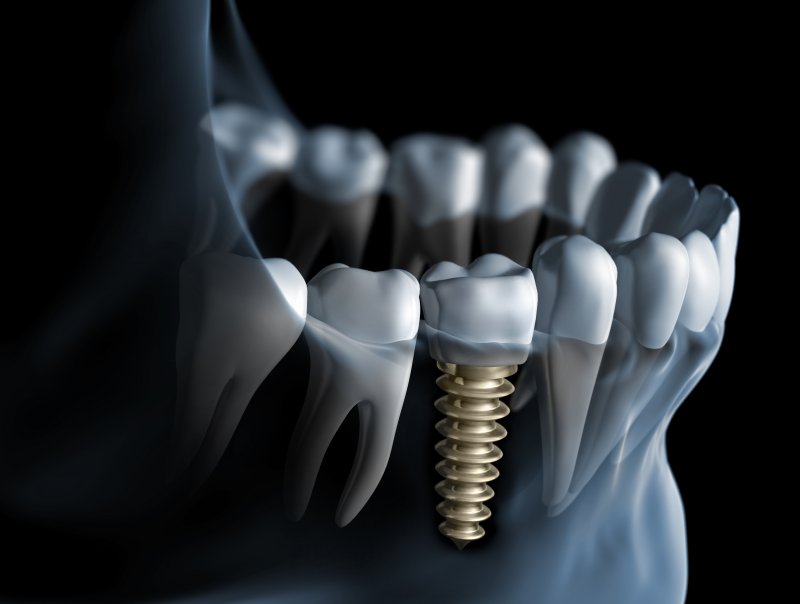
Dental implants are a preferred way to restore missing teeth because they prevent jawbone deterioration, allow patients to regain up to 90% of their chewing power, and even prevent premature aging. Even though they have a 95% success rate, there is still a chance that you could experience an implant failure. Continue reading to learn what causes this to happen and some steps you can take to avoid this unfortunate outcome.
What Causes Dental Implant Failures?
There are many different reasons that a dental implant can fail. Here are the most common:
- Peri-Implantitis: This condition is an infection that develops around an implant and in the gum tissue. Typically, this is caused by poor oral hygiene after dental implant surgery has been completed.
- Dental Trauma: A sudden trauma can cause your dental implant to fail. This is usually as a result of an accident or injury that is sports or otherwise related. The implant can break and dislodge as a result to a blow to the mouth.
- Bone Loss: If you don’t have a sufficient jawbone, it is difficult for the implant to seat properly and fully integrate. This greatly increases the chances of an implant failure.
What Are the Best Ways to Prevent a Dental Implant Failure?
In order to maintain the health of your dental implant and ensure that it heals properly, be sure to take the following steps:
- Choose a Skilled Implant Dentist: In order to get the results that you’re looking for and have them be successful, it’s crucial that you choose a skilled dentist. One that has plenty of training, experience, and uses modern technology is who you should be keeping an eye out for. For instance, a dentist who uses a cone beam scanner, a special type of x-ray that produces a 3-D image of teeth, bone, soft tissues, and nerve pathways, is more likely to be successful.
- Take All Prescribed Medication: After implant surgery, your dentist may prescribe you with an oral antibiotic or antibacterial rinse in order to reduce the possibility of infection. By using them as directed, you are reducing the probability of an implant failure.
- Practice Good Oral Hygiene: Infections are caused by bacteria in the mouth. It’s important that you brush and floss every day to keep the teeth clean. Even though patients cannot brush over their incision right away, a saltwater rinse should be used to clean the surgical area.
- Don’t Smoke: You know that smoking isn’t good for your health, but it can be especially harmful if you are recovering from a procedure. This is because smoking restricts blood flow and slows the healing process.
- Eat Carefully: Right after surgery, you shouldn’t immediately start eating tough foods. Not only is it uncomfortable, but it can also disrupt the healing process and lead to an implant failure.
As you’re going through the process of getting dental implants, be sure to keep these things in mind. By taking the correct precautionary steps and allowing your smile to heal, you will be able to experience all of the benefits of your restored smile!
About the Author
Dr. Jon Davidson has been serving patients for 25 years and opened his practice, Dental Dynamics, back in 2002. He is a member of the American Dental Association, Illinois Dental Association, and The Chicago Dental Society. Dr. Davidson and his team consisting of a periodontist, endodontist, and oral surgeon can handle the entire dental implant treatment process at their one convenient location. For more information or to schedule a consultation, visit his website or call (847) 329-9801.
